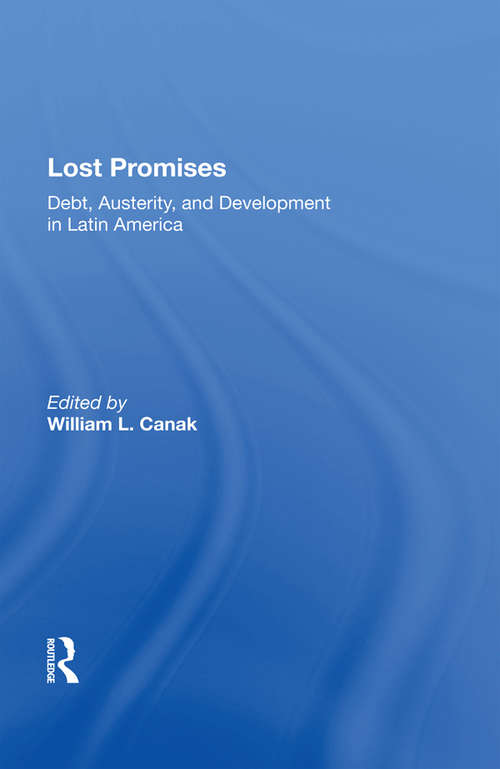Lost Promises: Debt, Austerity, And Development In Latin America
By:
Sign Up Now!
Already a Member? Log In
You must be logged into Bookshare to access this title.
Learn about membership options,
or view our freely available titles.
- Synopsis
- The origins of the debt crisis, the principal institutional actors involved, and the structure of related policies are well documented. Less studied and less understood is the impact of austerity on the people of Latin America. In this collection of original essays, leading Latin American and U.S. researchers map the political economy of austerity in Latin America. Each essay focuses on a specific aspect of social relations-urban, rural, demographic, or economic. Exploring the theoretical and substantive implications of austerity in Latin America, the contributors show that the study of the region's debt crisis can contribute to an understanding of the impact of internationalization on national social structure and development. The book begins with a historical analysis of global economic and institutional changes that presaged the rapid growth of debt in Latin America and determined the implementation of austerity policies. In Part 2, several essays focus on the structure of national economic stabilization policies and their impact on income distribution. Part 3 examines the effects of austerity on various dimensions of social structure including demography, urbanization, organized labor, and regional development. Popular responses to austerity policies are explored in Part 4.
- Copyright:
- 1989
Book Details
- Book Quality:
- Publisher Quality
- Book Size:
- 244 Pages
- ISBN-13:
- 9780429718380
- Related ISBNs:
- 9780429035333, 9780367005474, 9780367155346
- Publisher:
- Taylor and Francis
- Date of Addition:
- 09/03/23
- Copyrighted By:
- Routledge
- Adult content:
- No
- Language:
- English
- Has Image Descriptions:
- No
- Categories:
- Nonfiction, Politics and Government
- Submitted By:
- Bookshare Staff
- Usage Restrictions:
- This is a copyrighted book.
- Edited by:
- William L. Canak
